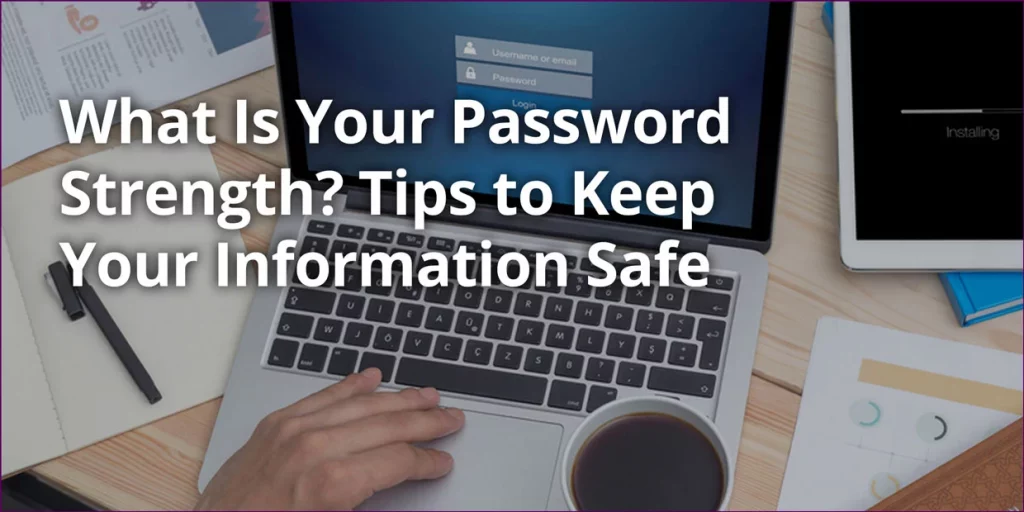What is your password strength?

Published: March 1, 2019
What Is Your Password Strength? Tips to Keep Your Information Safe
You probably don't think much about the passwords you use on a daily basis. For example, when was the last time you considered the strength of your passwords? When was the last time you changed your passwords for added peace of mind? Maintaining strong passwords is key to protecting your personal information online, so be sure to follow a few key tips to avoid falling victim to hackers.
Change Passwords Often
Some sites will require you to change your passwords often—usually every few months. Even if you aren't required to change your password, however, it's a good idea to do so at least once every six months. When changing your password, make sure to come up with something entirely different; don't simply switch up a few letters or numbers in your existing password.
Mix Up Your Passwords
While it may seem convenient to use the same password across most or all of your accounts, doing so is a huge mistake. Unfortunately, all it will take is one person getting access to one of your passwords before they'll be able to access every single one of your online accounts. Ideally, you should have a different password for all of your accounts. Yes, it will be more difficult to remember your various passwords, but at least your information will be safe.
Opt for Two-Factor Authentication
These days, many sites allow you to enroll in two-factor authentication. This means that if somebody enters your password correctly on an unrecognized device, they will be prompted to confirm their log-in using a code sent to your phone number or e-mail address. This is a great way to add an extra layer of security, so take advantage when possible.
Don't Trust Public Connections
These days, many sites allow you to enroll in two-factor authentication. This means that if somebody enters your password correctly on an unrecognized device, they will be prompted to confirm their log-in using a code sent to your phone number or e-mail address. This is a great way to add an extra layer of security, so take advantage when possible.
These are just a few security tips to keep in mind when it comes to protecting your passwords online. By taking just a few additional steps, you can drastically reduce your chances of falling victim to a hacking or phishing scheme. If you believe your identity could be at risk after a password is compromised, Santa Clara County Federal Credit Union offers fraud-protection and credit monitoring services for your peace of mind. Contact us today to learn more!






